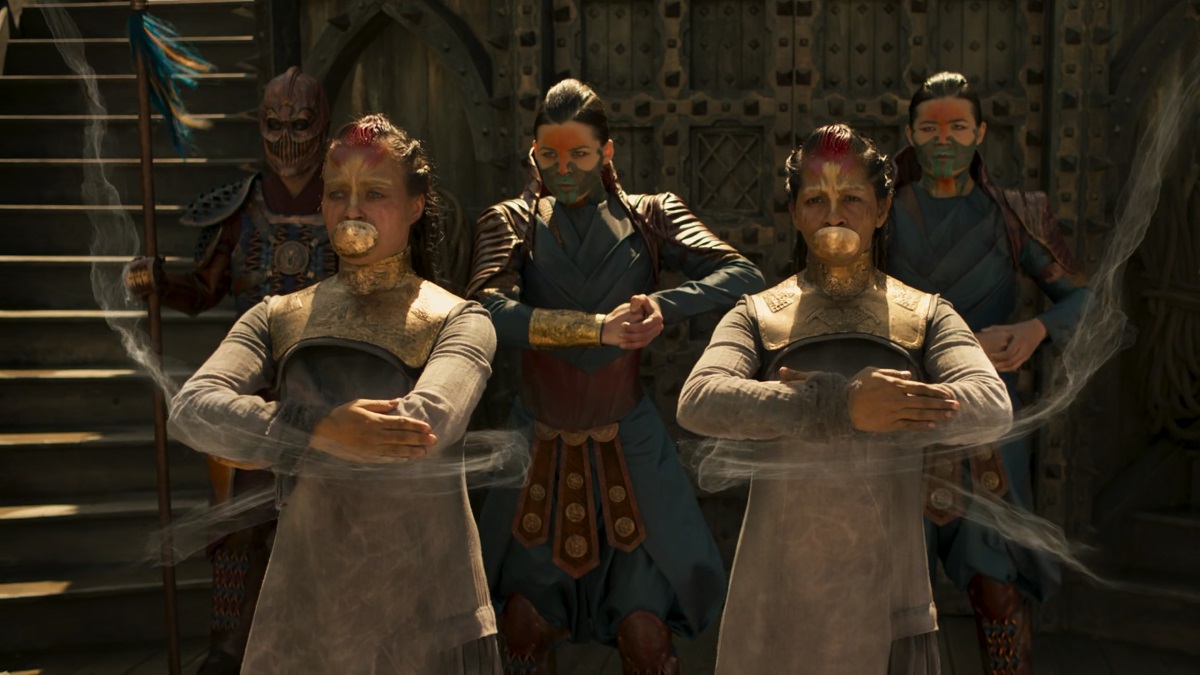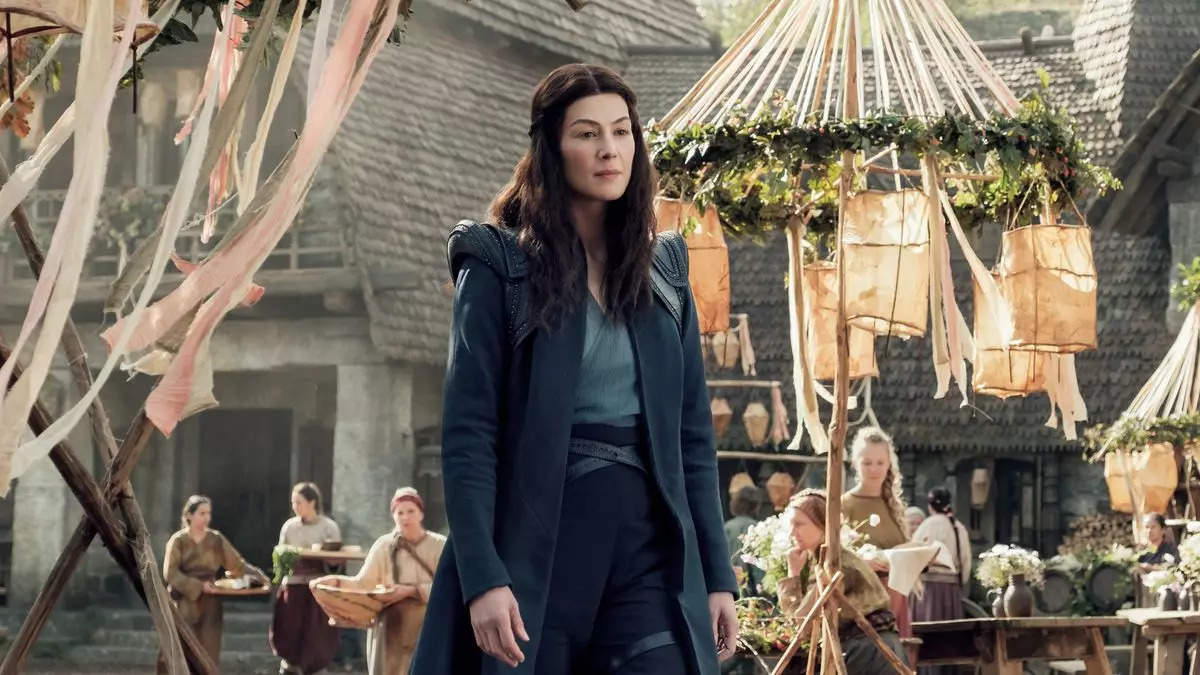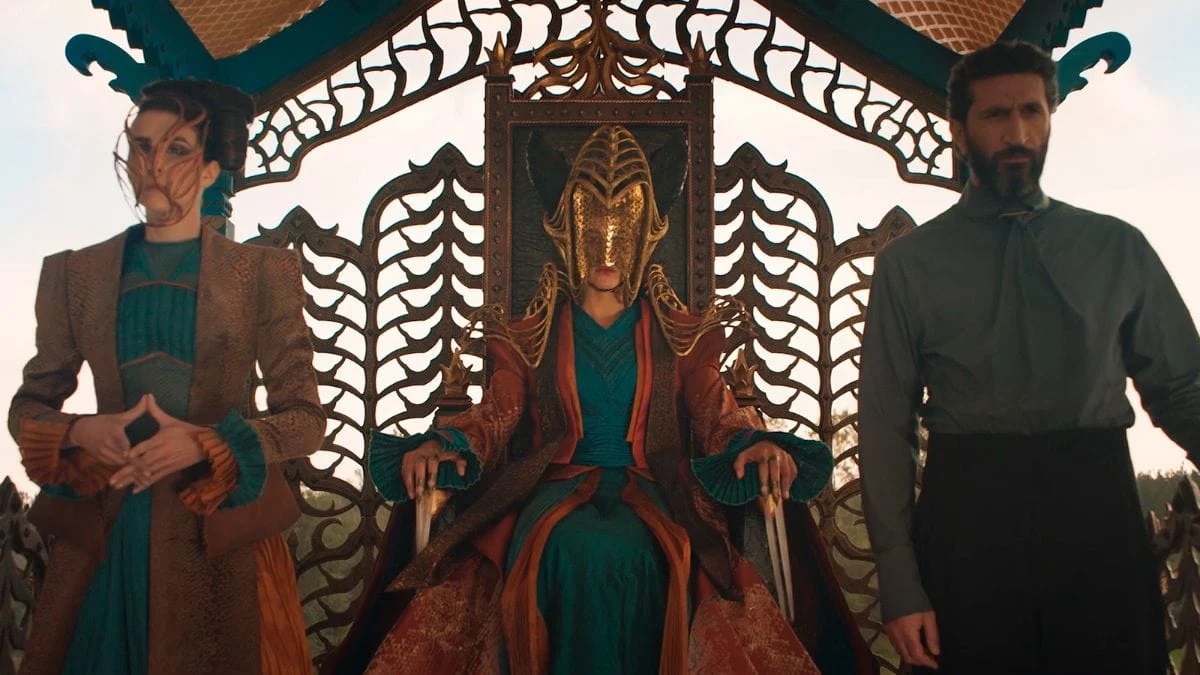It can be daunting to dive into a massive fantasy series as newcomers behind the camera, but Sanaa Hamri and Thomas Napper have made a seamless jump into the expansive world of The Wheel of Time.
You wouldn’t realize both are making their debuts helming blockbuster fantasy, but their careers have been building to this point for a while, as they explained to We Got This Covered ahead of the hit show’s return to screens today.
During our chat with Hamri and Napper, we cover whether there was any trepidation on boarding such an epic series, how they managed to keep the focus on story and character above all else despite the obligations for any returning fantasy to get bigger in terms of nothing but scale, and a well-earned shout-out for Napper’s egregiously overlooked feature-length debut, which you can check out below.

You’re both new additions to the directorial team, and even though the first four episodes seamlessly pick up from where season 1 left off in terms of aesthetic and tone, did you find it daunting at all boarding a series of this sort of scope, scale, and spectacle that’s got not just a built-in audience who love the books, but a whole new one who discovered it through the show?
Sanaa Hamri: I think, you know, I came on as a producer/director for season 2. And basically my job is to kind of hone in on the vision of what season 2 is. Season 1 was very much a great start for what season 2 is, even our characters are all together in the Two Rivers, we need to find out who the Dragon Reborn is. And we kind of really get to hunker down into each character.
But now that we’re in season 2, all of the characters are scattered. They’re each on their own journey. So, I mean, for me, the focus was on making sure the story was told well, that each episode whether I was directing it, or someone else was, felt like it was part of the same family, we want to make sure filmmakers can come here and have their own flair.
As you can see, Thomas’ first two episodes are amazing, but it’s also part of the language that we need to kind of almost like a relay run, grab the torch and kind of run with it. But that continues through to the end of season 2. I think with these high fantasy worlds, one has to always make sure that the tone remains the same, and that we respect each world, and that we’re not doing something different that doesn’t make sense. And we have a great team that are the keepers of you “this is what these type of people do.”
Thomas Napper: Yeah, yeah, absolutely. But your your choice of word is right, it can be daunting. I’ve never worked so hard on anything as I did on on series 2 of this show. I mean, it’s quite a high-pressure shoot because there are no small days, there are no scenes with two people just talking in a room. They just don’t exist on this show. So it’s a busy show to work on. There’s a lot to take on.
And that includes the book, then the scripts, then the world, then quite a big cast of series regulars, new series regulars coming in. I really enjoyed the cast coming in and doing the new casting pieces. Meera Syal coming into play Verin and Natasha O’Keeffe coming into play Selene, Gary Beadle coming into play Elyas, those felt really exciting. And I truly love the kind of internationality of the cast. I think it’s a very genuine universe that’s been created for Robert Jordan’s world.
And I sense that it’s kind of very faithful to the books, that it is about different cultures. So the Seanchan are very different from the Cairhiens and the Westlanders. The Aiel are different from Tar Valon, and the Sea Folk. There are these different cultures represented throughout the books that have very strong identities, they have different tattoo systems and different ways of plotting their hair, different materials. This kind of level of world-building is absolutely thrilling to be part of, and amazing HODs and craftspeople across the entire show working to to create the cultures that you see.

Sanaa, your filmography could best be described as eclectic and even that would be underselling it, and you’ve now dived headfirst into fantasy with both The Wheel of Time. Was that always a jump you were hoping to make sooner rather than later?
Sanaa Hamri: Well, for me it was a natural progression from my career, which as you described is eclectic, because I love different things. I initially started as a filmmaker and a music video director, working with amazing artists from Prince to Mariah Carey to Sting. So I really learned a lot about how important visuals were, and how important the framing, and just kind of creating imagery that nobody has done before, because that’s part of the music industry of it all.
And then when I landed into film and television, I really kind of dug deep into character work and drama and tone. So when I moved from another show into The Wheel of Time, it felt like such a natural progression for my career. And I feel like it’s a start of my career right now, in a whole other capacity. So to me, I felt very comfortable because it marries all the worlds that I had worked in prior to this very moment, so I feel very at home here.
Thomas Napper: Yeah, I was gonna say pretty much the same thing in my own way. I guess that the dramatic work that I’ve done with Joe Wright, if you kind of fuse that with some of the Disney shows that I’ve been on, you probably end up around here. It’s sort of big, big, big, spectacular scale matched with what I’m really truly interested in, is the the actors and the performances and working on character.
I’m really, really interested in character and performance. So I would love working with the actors more than any other aspects of my job. I just find that the process of excavating and revealing character to be the most rewarding and thrilling part of my job.
Sanaa Hamri: And that’s what I think is very special about the show, is that we really allow the intimacy of character development versus just being spectacle. The spectacle comes within and with the world, but it’s truly about what Thomas was saying, a honing in on working with the actors and making sure it’s rooted in a grounded way.
And it’s dramatically tonally right for the scene. And then the add-ons and kind of the cherry on top is all the hair, the makeup and the wonderful worlds. But I mean, we are focused here on character development, and making sure that the story is true and authentic.

One final thing, I was taken aback when I discovered the director behind the first two episodes of The Wheel of Time season 2 was also the brains behind Jawbone, because it doesn’t get the love it deserves. It’s a wonderful movie.
Thomas Napper: Well, thank you so much. Thank you so much. Yeah, it’s we had a little anniversary screening at the BFI last year and everyone got back together. They’ve done a little book, commemorative book. It’s really, really good. It’s got a little following. It’s really nice. Thank you for that.
The first three episodes of The Wheel of Time season 2 are now streaming, with the rest rolling out on a weekly basis.

